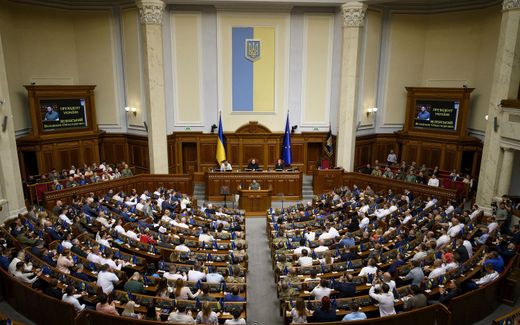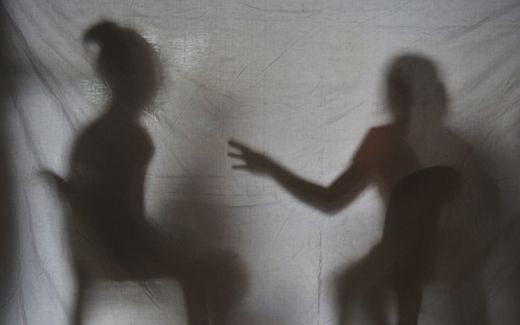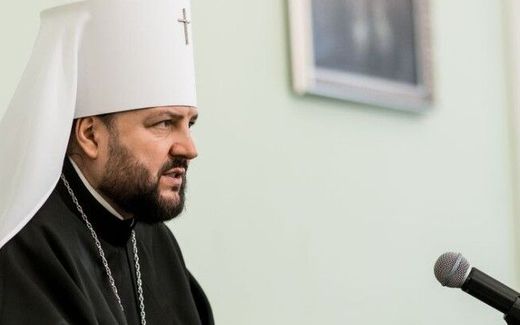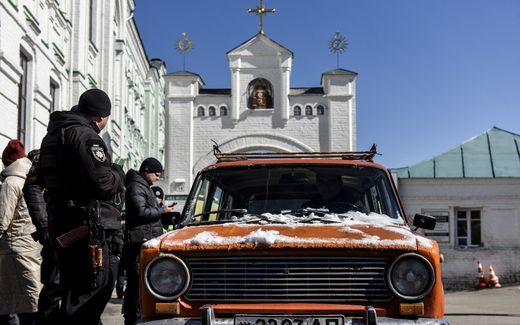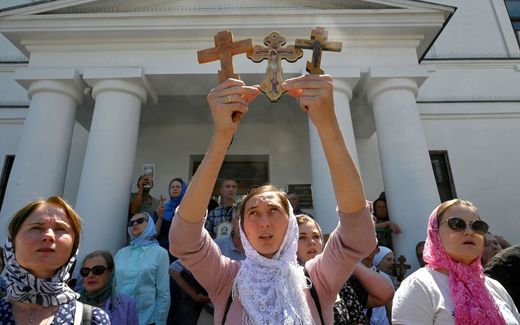Evert’s comment: Zelensky’s church politics is as divisive as his predecessor’s
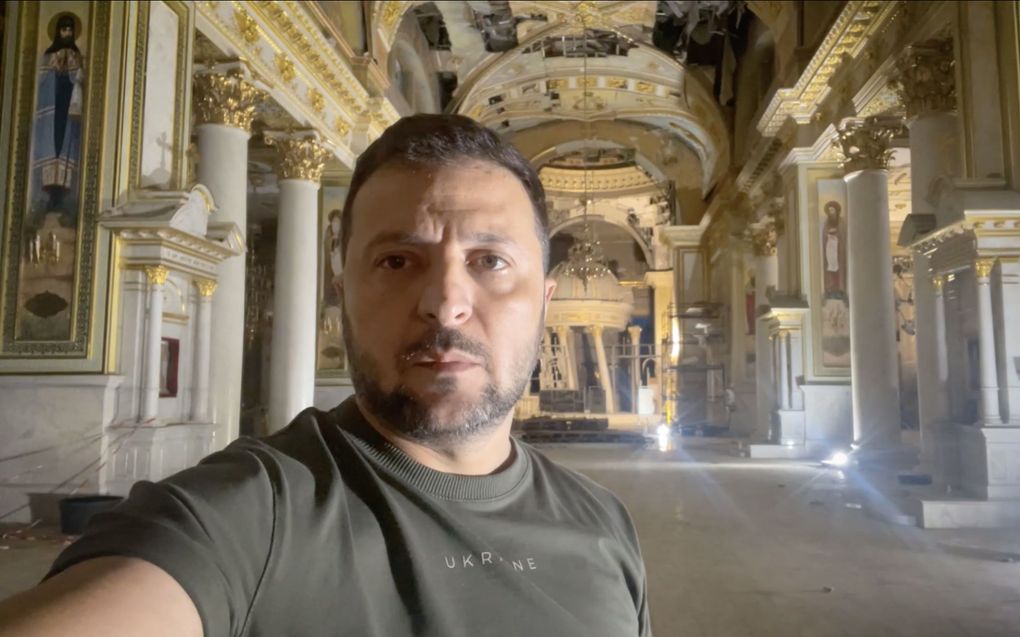
President Volodymyr Zelensky takes a selfie in the Cathedral in Odesa, July 2023. Photo EPA, Ukrainian Presidential Press Service
Eastern Europe
President Zelensky is a miraculous figure of unity for his country. All over the world, people recognise him, like him, and trust him. But when it comes to the issue of the Orthodox churches in Ukraine, it is really questionable whether he is serving the unity of the Ukrainians in his country.
On Tuesday morning, the military authorities in Kyiv had a prayer breakfast with local faith leaders. The event was meant to prepare for the Ukrainian Independence Day on Thursday, August 24th. Several religious leaders were there, like Metropolitan Epiphanius of the Orthodox Church of Ukraine (OCU, formed in 2018), some Muslim clergy, and the Jewish chaplain David Milman.
Enough for a few conclusions. First, the Ukrainian authorities recognise faith leaders for their work in society. Second, the authorities chose to invite the Orthodox Church of Ukraine but not the other (and much older) Ukrainian Orthodox Church. This is not accidental; there is a conscious decision behind this.

Of course, the church has never been free from state influence in Ukraine. During Soviet times, the church was oppressed. In the nineties, the church was revived. But after the (Western-inspired) Orange Revolution in 2004, the Ukrainian Orthodox Church (UOC) met a lot of mistrust because of its formal relationship with the Patriarchate of Moscow (MP).
In a way, it was surprising that the UOC defended Ukrainian sovereignty directly after the Russian invasion on February 24th 2022. The church has stuck to that position and confirmed its support for the Ukrainian army, such as donating cars and supplying food.
But still, there is a toxic atmosphere between the Ukrainian Orthodox communities. Since 2018, there is also the Orthodox Church of Ukraine (OCU). By being invited to a prayer breakfast and receiving the opportunity to speak there, the church gets something of the “national spiritual body” for the country. And since this new church was born with active help from the (then) President Poroshenko, the state has still sympathy for this new community.
Legality
From a political perspective, it is understandable that President Zelensky feels more comfortable with the (new) OCU than the (old) UOC. The UOC is still affiliated with the Patriarchate of Moscow. For this reason, you often see the abbreviation MP added to the name: UOC-MP. And although the church has declared that this connection with the Patriarch is only canonically (so to say, on paper), it is still there.
From an Orthodox view on the church, it would be difficult to cut the affiliation with the Patriarchate, since this connects the church with the World Orthodoxy. A local Protestant church can claim to be a “true church of Christ”, whether it is connected to any synod or other congregation or not, but from an Orthodox view, that is simply impossible. The legality of the sacraments would be questionable (as would be the forgiveness of sins implied in the sacraments). In Orthodox theology, the sacraments are the core.
For Zelensky, it is much more favourable that the new OCU is connected to the Ecumenical Patriarchate in Constantinople. Moreover, this church was formed due to the strive for Ukrainian independence. So, this community fits much better in Kyiv’s government’s political agenda.
During his election campaign in 2019, Zelensky accused his predecessor, Poroshenko, of mingling with church issues and of being divisive in an era in which unity was necessary. But meanwhile, the circumstances have changed and Zelensky with them. He openly accuses the UOC of collaboration with the Kremlin now. A few weeks ago, he said to the representative of “Constantinople” that Ukraine is in favour of religious liberty but not for a community that “is used by the aggressor state.”
Hero
In peacetime, such an accusation might not have done much harm. But now the whole Western world believes Zelensky is a hero, the people there believe that the UOC is indeed a dangerous body.

Undoubtedly, there is enough rotten fruit in the ranks of the UOC. During searches earlier this year, the police found pro-Moscow material in houses of Orthodox clergy people. The most obvious thing to do is prosecute those people since it undermines national security in wartime. But that is not the same as blaming the whole church for “being used” by the Kremlin.
There are other examples of tension between the churches as well. Last weekend, the politician Artem Dmytruk was astonished that people from the new church raided the buildings of the old church. The Member of Parliament found it hard to believe that attacks on priests and believers happen in a civilised country, according to a report. “Why do in a warring country some youngsters beat people and seize the property of churches with impunity? Why do the police assist not the victims but the attackers?” he asked. “Is it not enough for us to grieve from the aggressor who destroys our people and our temples? Why do the raiders cover themselves with pro-Ukrainian slogans?”
For Dmytruk, it is clear that people raiding Orthodox churches “work against Ukraine and its people, split society and weaken the state, undermining our defence capability.”
Very probable, Dmytruk is right that this strategy to –de facto– de-legitimate the old Orthodox Church, will split the society. Many sons of Orthodox clergy people are now fighting at the front. However, the willingness to do this will decline if Kyiv continues questioning the church’s motives.
Provocation
The most symbolic example of the conflict between church and state is the battle around Kyiv Pechersk-Lavra, the world-famous monastery in the capital that functions as the headquarters of the Ukrainian Orthodox Church. Earlier this year, the state announced that it would stop the lease contract with the church. Of course, this added to the doubts about whether the state was willing to work with this church.
The church monks should have left the building for months already, but they are still there. Every day, the liturgies are continuing, although some court decisions have confirmed the state’s decision. Of course, this is seen as a provocation of the state from the church.

Moscow –the Patriarchate and the Kremlin– sees this as well. For both of them, it confirms that Kyiv is in the hands of Western robbers who do not really believe in religious freedom. Last week, the head of the Foreign Intelligence Service (SVR) of Russia, Sergei Naryshkin, said: “In Europe and the United States, almost everything is allowed: sawing down Christian crosses, burning the Quran, sacrilege and blasphemy. What is really impossible is to defend your faith, to take it seriously.”
Of course, this is part of the Kremlin propaganda. But a wise government in Ukraine would not give any reason for this.
Subordination
A clever government would invite the Metropolitan into the Presidential office and communicate with him as an equal partner. But perhaps that is too much of an idea from a Western person.

As a Western European, it is difficult for me to understand the relationship between church and state either in Ukraine, Russia and Belarus. We are used to free and independent churches so that they can speak to the government freely. However, in the former Soviet countries, the relationship between state and church is one of subordination and dependence.
Nevertheless, President Zelensky would wisely invest more in the nation’s unity. From a Western way of thinking, it is not suitable for a state to have a preferred church. Suppose Zelensky wants the nation united under the beautiful blue-yellow flag. In that case, it is better to stay friends with the Ukrainian Orthodox Church, since they have declared themselves against the invasion. That would help the country more than drive them away from the centuries-old monastery.
Evert van Vlastuin (1972) has been working as a journalist from the early 90s.
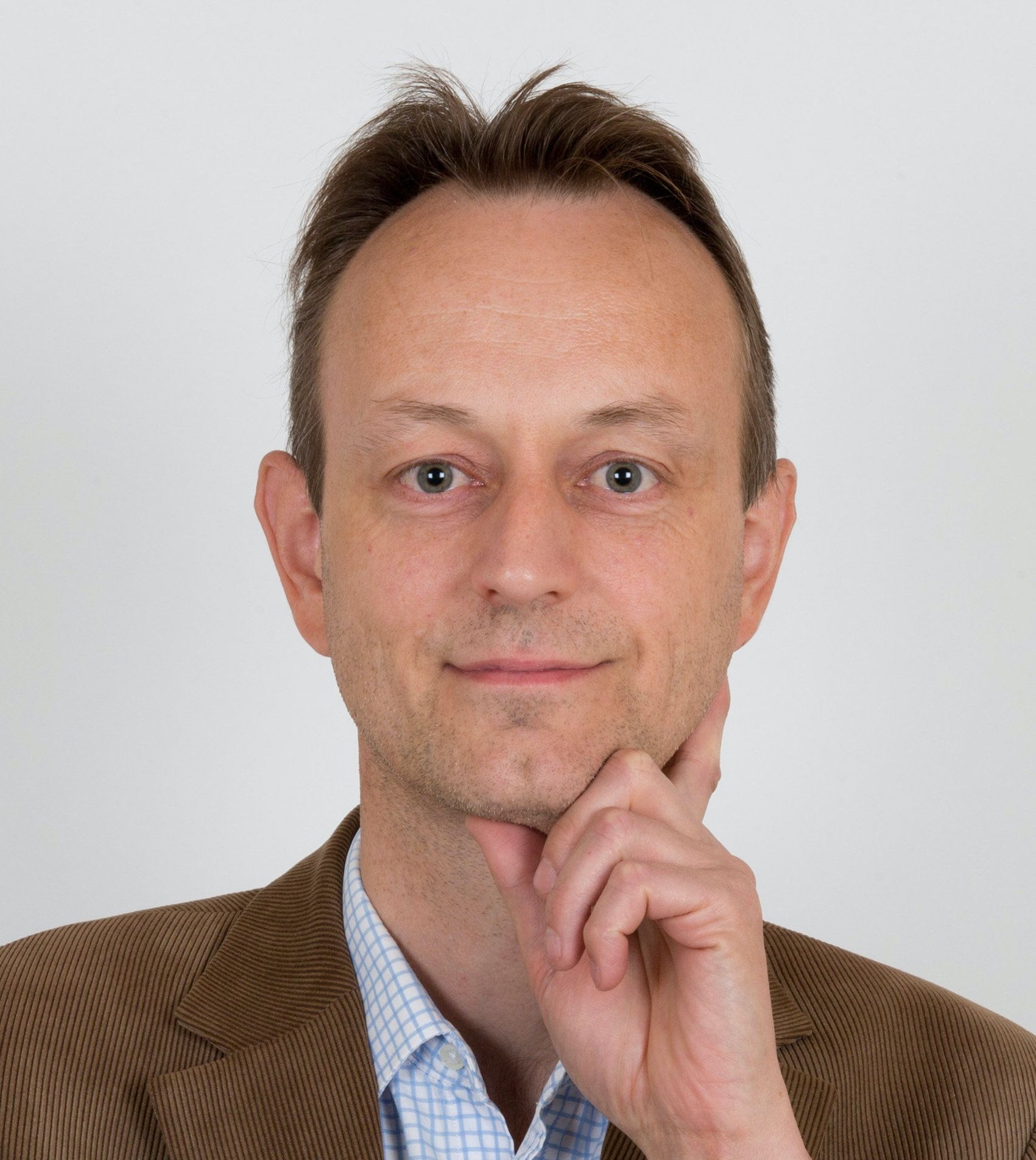
He has interviewed several Nobel Peace Price winners as the former South African president F. W. de Klerk and two from Northern Ireland, John Hume and David Trimble.
From 2001, he worked as a foreign news reporter for the Dutch Reformed Daily. Since 2021, he works as managing editor for the start-up CNE.news.
Respond to Evert by e-mail.
Related Articles


